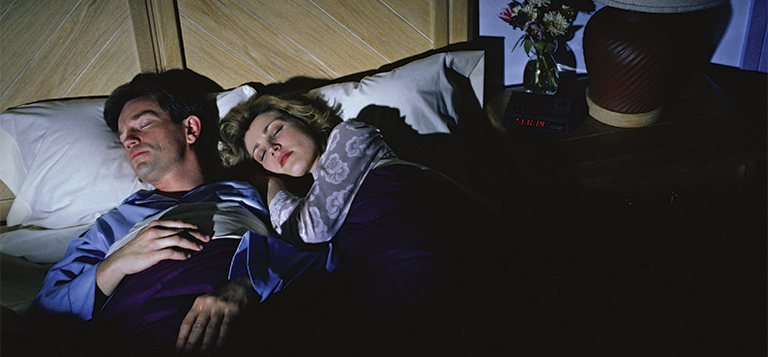Did you know that good sleep is an important part of a healthy lifestyle? Also, that lack of sleep can be incredibly harmful to the body and decrease one’s quality of life? Everyone knows that diet and exercise are critical for a healthy lifestyle, but sleep is just as important – or even more so.
Lack of sleep affects nearly every organ in the body and has been associated with many health risks. Sleep is necessary because it is the time our bodies use to physically and mentally repair themselves. Depriving our bodies of sleep affects the ability to maintain a healthy weight, can influence thoughts and actions, and negatively impacts cardiovascular health and overall wellbeing.
Here are some suggestions to improve overall sleep:
- Eat well and exercise regularly– Eating properly and getting plenty of exercise keeps our weight in check, and it also helps with improving sleep. Avoid eating foods high in carbohydrates; as carbs flood the muscles with glucose, causing involuntary muscle movements during sleep. If you are a night time snacker, try a handful of nuts.
Nuts provide healthy fats and protein, which are satisfying and digest slowly. Nuts are also rich in magnesium, a mineral that helps to calm the nervous system. Don’t exercise too close to bedtime as this increases body temperature, ramps up your metabolism, and can make it difficult to fall asleep. - Just say no to caffeine, nicotine, alcohol and electronics– All of these can make going to sleep difficult. Avoid bright light at least an hour before going to bed. Remove all electronics, TVs, computers, and other electronic devices from your bedroom. The bright lights emanating from them disrupts your body’s ability to naturally produce melatonin, a natural hormone that regulates sleep. Darkness will help your body begin producing the melatonin it needs.
- Set Your Schedule– Try to go to bed at the same time and wake up at the same time. Creating a schedule helps regulate your body’s internal clock and may help you sleep better.
- Keep it Cool– Make sure your bedroom is a relaxing environment. Your bed and pillows should be comfortable and supportive. If not, it may be time for new bedding.
- Shift Gears– Your body needs time to shift into sleep mode. The last hour prior to going to bed should be spent doing a calming activity, such as reading or taking a warm bath.
- Use Essential Oils – There are many essential oils that have well-known relaxing properties. When diffused aromatically in the bedroom, they can create a calming and peaceful environment. Essential oils can be used topically and taken internally to promote relaxation and calm the nervous system, all leading to a restful night’s sleep (**Please be very careful and get well educated on essential oil use).

Ronai Brumett is an essential oils educator and Gold Wellness Advocate with doTERRA International. She is passionate about helping people become healthy, physically, emotionally and financially successful.
Ronai is a Certified AromaTouch Practitioner and one of only 3 AromaTouch instructors in the state of Minnesota. Ronai is married to her sweetheart of 22 years and they have 4 amazing young people.
www.mydoterra.com/ronaibrumett
[email protected]
(763)221-5999
What makes us different? Our care comes to you!
View Our Service AreaWe Are A Comprehensive Mobile Company Focused on Wellness, Fitness, Rehabilitation, and Prevention
We specialize in transforming the lives of seniors, adults and teenagers with a wide array of diagnoses and conditions in their home or location of choice. You deserve to be your best self through good health and wellness. We would love to have the privilege to work with you or a loved one.
Request a FREE Consultation Today!
